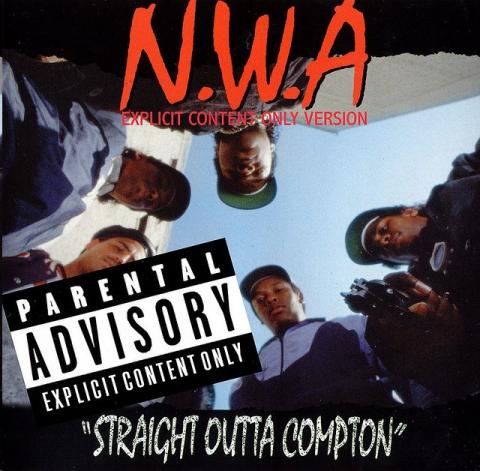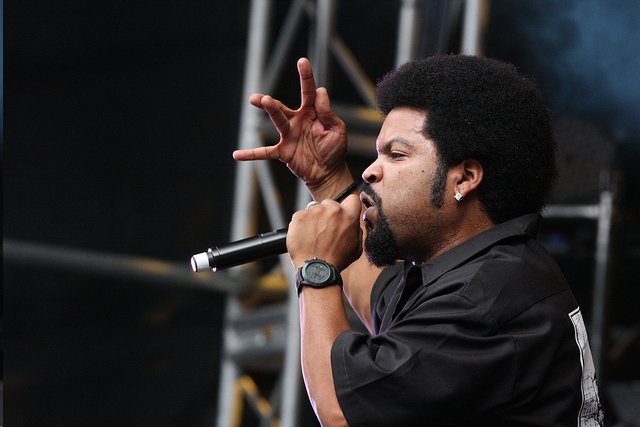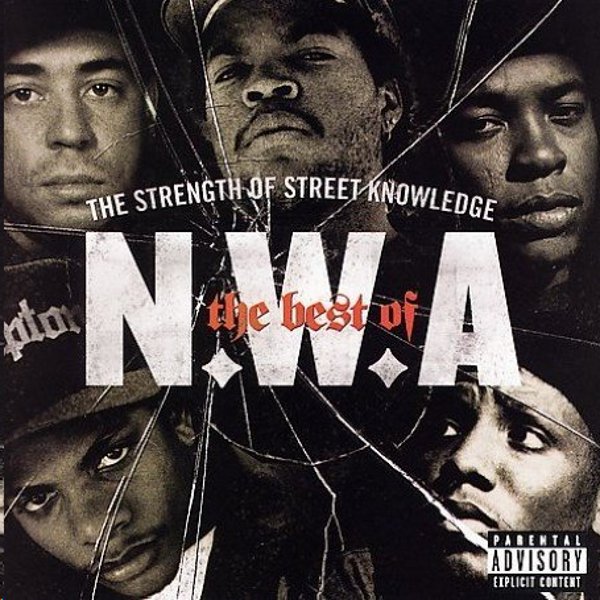Reflecting on the Music That Shaped the Los Angeles of the Rodney King Era

“What you have is people sick of the police, and that's when you have a revolution on your hands” -- Ice Cube
South Central Los Angeles residents have a longstanding sense of animosity towards those men and women in uniform. The relationship between the LAPD and South Central has been one of racial profiling, violence, and manipulation. This dates back to police chief William H. Parker who in the 1950s militarized the department by recruiting ex-military men from the South who were comfortable with the racial codes of that region, thereby establishing racial tension through the methods of containment and oppression.
Because of the gang violence and drug addiction that is synonymous with the inner city and especially Los Angeles, there is sense that these type of measures are warranted for a people who commit such acts intra-communally. And police brutality stands as another repressive constant within the inner city. Something NWA summed up with their classic single F*ck Tha Police. Although some may cringe at the title and lyrics of the song, the sentiment is shared across the predominantly African-American inner cities in this country. It serves as a sort of anthem for the many who have been victimized by those paid “to protect and to serve.” Throughout the volatile history of LAPD's relation to South Central, which dates back to the mid 1960s with the Watts Riots, Los Angeles found its revolutionary voice through 'gangsta rap' in the late 1980s. And like any other form of artistic expression, gangsta rap of the time reflected upon the harsh social circumstances and expressed them just as harsh through song.

Gangsta rap is as much a part of the fabric of Los Angeles as are beaches and sunny skies. If you listened to Ice Cube, or Snoop Dogg you understood the overwhelming anger of a community faced with the everyday of struggle of subordination. Hip Hop has always covered a host of subjects from partying, sexuality, to poverty, but its finger stayed on the pulse of the police brutality that plagued its communities. In 1989 the controversial rap group NWA released F*ck Tha Police, a battle cry of sorts that vented the tensions of the past 30 years. Though the lyrics of the song evoke a sense of uproar and fantasized role reversals (cops facing a judge and jury composed of the NWA group members), it spoke to the idea that perpetrators of racist violence should expect it to be reciprocated. As Ice Cube put it “they think they have the authority to kill a minority.”
Following a high-speed pursuit in March of 1991, a car driven by Rodney King along with two accompanying passengers came to a stop in the Lake View Terrace neighborhood of Los Angeles. The two passengers were cuffed and placed in the patrol car while King who was said to have resisted arrest was taken down by force. Nearby resident George Holliday filmed the assault and it showed King being tasered, kicked in the head, and beaten with batons for over one minute. What the community of South Central Los Angeles had was indisputable evidence of what many, including the Hip Hop community had been speaking about for years. The aftermath of the ‘not guilty’ verdicts in April of 1992 resulted in one of America's largest riots.

The Hip Hop of the time played as background music for the rioters. The time for dialogue in many people’s minds had ran its course. The collective mood felt throughout the community was one of confirmation. NWA told the public outside of Los Angeles what the reality was three years prior to the Rodney King beating and the subsequent rioting and looting was explained unapologetically by Dr. Dre in “The Day the N*ggaz Took Over” off of his solo debut “The Chronic.”
The idea is that police only perpetuate the violent attitudes felt within the community and the racial tensions from outside. In Ice Cube's track, “We Had To Tear This Muthaf*cka Up” off of his 1992 album The Predator, he says “I can't trust a cracker in a blue uniform.” By definition the police force is a civil band appointed by federal or local government whose responsibilities are to maintain peace and detect crime. But what we have seen is failure to do so when the force creates a sense of distrust among those they are appointed to serve.

With this year marking 21 years since the riots, Los Angeles still finds its police department in the midst of controversy. The recent events surrounding Christopher Dorner and the firsthand account of excessive force and crooked dealings within the LAPD was further confirmation of the perception Los Angeles residents hold of the police force. And why these residents, especially young men of color, will still feel like a “young n*gga got it bad cuz I'm brown.”
Author Bio:
Kevin Morris is a contributing writer at Highbrow Magazine.
Photos: Eva Rinaldi, Wikimedia Commons.






























































































































































































































































































































